US, Europe Continue To Voice Support For Iran Protests
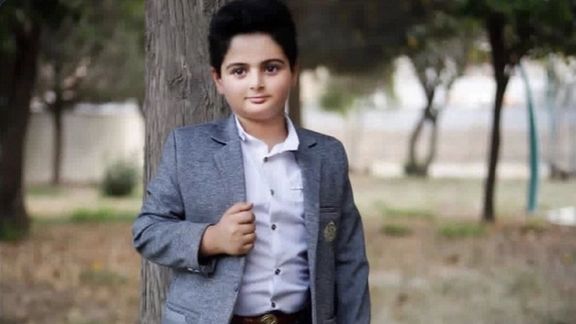
Three months into antigovernment protests in Iran, expression of international support continue, emphasizing that the regime must be held accountable for its crimes.

Three months into antigovernment protests in Iran, expression of international support continue, emphasizing that the regime must be held accountable for its crimes.
US State Department Deputy Spokesperson, Vedant Patel said the eyes of the world are upon Iran right now – and human rights violations – inflicted by Iran’s government on its own people must not go without consequence.
He told a press briefing on Friday Washington is gravely concerned that authorities reportedly continue to kill more of their own people in an effort to suppress peaceful protests.
“We also continue to remain deeply concerned about reports of mass arrests, sham trials, and now death sentences being handed down to protesters and carried out as well,” underlined Patel.
He further reiterated that the JCPOA is not the focus right now, and the US candidly remains very skeptical of anything coming out of Tehran on this issue, whether it be issues relating to the IAEA or other things.
Meanwhile, President of the European Parliament, Roberta Metsola expressed solidarity with Iranians in a Tweet Friday saying “the women, men and all those protesting in the streets of Iran have inspired the world. We have stood by you and will stay with you.”
The US-based Human Rights Activists News Agency (HRANA) announced in its latest report that from September 17 until Friday, December 16, at least 495 protestors have been killed, of which at least 68 were minors.
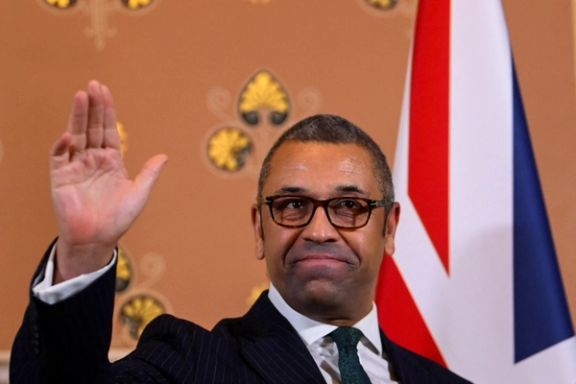
British Secretary of State James Cleverly says his country has sanctioned more than 40 officials of the Islamic Republic since the beginning of the protests in Iran.
UK’s foreign policy chief said in a tweet on Friday that “Three months ago today, Mahsa Amini died after her arrest by Iran’s 'Morality Police'. Since then, we've sanctioned over 40 Iranian officials.”
He further added that in total, the UK has sanctioned over 300 people and entities, including the IRGC in its entirety.
Nationwide protests that erupted after the death in police custody of 22-year-old Kurdish Iranian woman Mahsa Amini on September 16 have posed one of the biggest challenges to the Islamic Republic since its establishment in 1979.
Britain announced sanctions December 9 against 30 people worldwide, including Iranian officials, for serious rights violations, such as the violence on protesters.
Iran executed the first detained protester December 8 after a sham trial, sparking worldwide outrage and condemnations. The execution is seen as part of a government strategy to intimidate ordinary people and activists from pursuing the almost three-month-old antigovernment protests movement.
In mid-November, Britain had slapped a new round of sanctions on 24 Iranian officials who played a role in cracking down on protests.
In a press release the United Kingdom announced that the “sanctions target officials within the Iranian regime who are responsible for heinous human rights violations.”
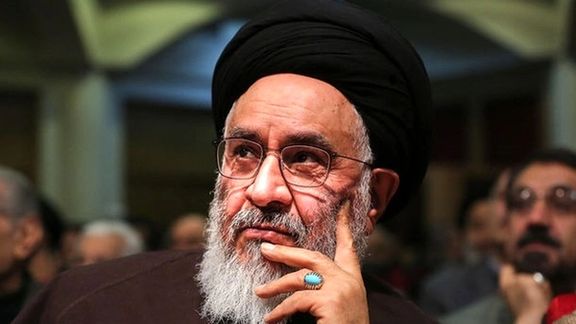
A few days after the execution of two detained protesters, a prominent cleric in Iran has voiced his objection to excesses and called for fair treatment of inmates.
At the same time, tens of Friday prayer Imams as well as some other hardliner clerics supported the executions and demanded longer prison sentences for protesters. One Imam, firebrand Ahmad Khatami in Tehran said that Supreme Leader Ali Khamenei “speaks for God Almighty” and that his orders should be obeyed as sacred words.
Khatami added that confronting Khamenei is tantamount to standing against God and his saints and prophets.
Elsewhere in Iran, another cleric, a member of the Assembly of Experts, Abbas Ka'bi supported the protesters' execution and said at the Qom Seminary that protesters disrupt public security and thus they fight God and should be executed.
Many Iranian clerics as well as Muslim scholars in Iran and other countries have objected to the execution of protesters on religious grounds of punishing those “who fight God.”
Meanwhile, another hardliner, Ahmad Alamolhoda, who represents Khamenei in Khorasan Province in northeast Iran said on Friday that those who chant, "Woman, Life, Freedom" are godless. He also described those who are against compulsory hijab in Iran as "mercenaries."
Alamolhoda, who is the father-in-law of President Ebrahim Raisi, further claimed that God belongs to the Islamic Republic and that there is no God for the enemies of the clerical regime in Iran.

Confronting the extremist clerics, Ayatollah Mostafa Mohaqeq Damad, the Chairman of the Islamic Studies group at the Iran Academy of Sciences has criticized the hardliners who call for maximum punishment, saying that individuals who have no legal knowledge of justice are forcing themselves upon the Judiciary .
Damad was also referring to a majority of Iranian clerical judges who happen to be ruling at the revolutionary courts, accusing them of lacking the academic background required for anyone who wants to be a judge.
After the establishment of the Islamic Republic in 1979, people with minimal educational background were appointed as judges as political appointees of the ruling clerics. As a result, many defendants and lawyers have pointed out that judges take their orders from the security forces and in fact the verdicts issued for political prisoners come from the intelligence organizations.
Damad also condemned the "unforgiveable" executions in the first years of the Islamic Republic as a stigma on the face of the Islamic government in Iran. He added that history will not forget the bloods spilled because of unfair and illegitimate punishment.
During the past three months as security forces have sent thousands of protesters to jail for taking part in protests, many inmates and their families have voiced concern about harsh treatment and brutality in Iranian jails and courts. Many inmates have complained that they have been denied the right to be represented by lawyers. As an example, Mashaallah Karami, whose son Mohammad Mehdi is in jail and sentenced to death told Etemad online that they have not been allowed to have their own lawyer. The court has appointed its own lawyer who does not answer his phone calls. Karami added that the revolutionary court tells the families that their children have apposed God and his prophet, while they were demanding democracy and freedom.
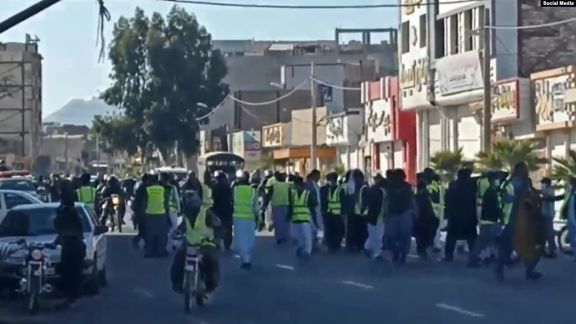
A prominent dissident Sunni Muslim cleric Friday urged Iranian authorities on Friday to free thousands of detained protesters and stop executions.
As the three-month-old unrest churned on with street marches in the restive southeastern province of Sistan-Baluchestan, outspoken Sunni cleric Mowlavi Abdolhamid criticized the death sentences handed out to the arrested protesters.
"We compassionately recommend that you release the recent prisoners who were detained during these protests and not treat them harshly. Most of them are young and very young. Free the young men and women," Abdolhamid said.
"Don't charge them with (capital offences), and if they are, they should not be sentenced to death and put to death," the cleric said in a Friday prayers sermon.
After the sermon, demonstrators took to the streets of Zahedan, capital of the impoverished Sistan-Baluchistan province in the southeast. "This nation wants freedom, it wants a prosperous country!" they chanted, in videos posted on social media.
Earlier in the day, Amnesty International said 26 individuals faced possible execution after the Islamic Republic hanged two people arrested over the protests that erupted after the death in police custody of young Kurdish Iranian woman Mahsa Amini on September 16.
“At least 26 people are at great risk of execution in connection with nationwide protests after Iranian authorities arbitrarily executed two individuals following grossly unfair sham trials in a bid to instill fear among the public and end protests,” Amnesty said in a statement. "Of the 26, at least 11 are sentenced to death and 15 are charged with capital offences and awaiting or undergoing trials," it added.
The 26 individuals have all been denied fair trials, including the rights to adequate defense and access to lawyers of their choosing; to be presumed innocent; to remain silent; and to receive a fair, public hearing, the statement read. According to information available to Amnesty International, at least 10 of them, including Hamid GhareHasanlou, Toomaj Salehi and Mohammad Ghobadlou were tortured, and authorities used their torture-tainted “confessions” or those of others as evidence. State media also broadcast forced “confessions” of several defendants prior to their trials.
The rallies continued in other parts of Iran, as unidentified attackers damaged a mosque in western Lorestan province early on Friday by throwing petrol bombs.
According to the US-based Human Rights Activists News Agency (HRANA), 495 protesters have been killed as of Thursday, including 68 minors. Sixty-two members of the security forces have also been killed. It said more than 18,400 are estimated to have been arrested.
Protests against the Islamic Republic were also held Friday in several cities across Europe as well as Australia and New Zealand.
International measures against the regime are also growing. On Wednesday, the Islamic Republic was ousted from a United Nations women's commission for policies contrary to the rights of women and girls, a move proposed by the United States.
The move was the first time in United Nations history that a country was expelled from the commission, and the second blow to the Islamic Republic over its brutal crackdown on protests sparked by the death of Mahsa Amini in custody of hijab police. The first step to hold the Islamic Republic accountable was creating a fact-finding mission by the Human Rights Council. The Geneva-based UN Human Rights Council voted on November 24 to launch an independent investigation into the regime’s deadly repression.
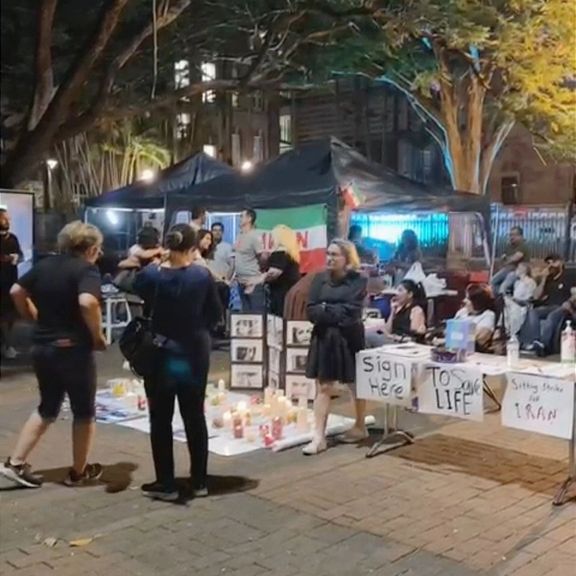
Iranian communities in several European cities held rallies Friday in support of protests in Iran and to demand the closure of Islamic Republic’s missions in Europe.
Iranian Australians also held a protest in Brisbane outside the regional parliament of Queensland. The crowd sand protest songs and displayed photographs of civilians killed by government forces since September, when nationwide protests began after the death in police custody of Mahsa Amini who was arrested for ‘improper hijab’.
In Europe, Iranians gathered in Stockholm and Frankfurt demanding freedom for imprisoned journalists in Iran and urging European countries to cut ties with the Islamic Republic.
Iranians who have settled in Europe hold regular protests for three months. The community in Stockholm is one of the most active. Sweden’s Foreign Minister Tobias Billström visited the rally expressing support for rights of protesters in Iran and condemning the execution of young people by the clerical regime.
Iranians in Frankfurt gathered outside Islamic Republic’s consulate demanding that Germany expel all regime diplomats. A group of protesters have camped at the location for the past 24 days and have gone on a hunger strike. German media covered the Frankfurt rally.
The Italian Senate in Rome was the venue of a conference Friday in support of protesters in Iran, with the participation of Italian Iranians. The foreign affairs committee of the Italian Senate was the organizer of the event to hear the views of the Iranian community.
Iranian in Britain had held rallies and protests on Thursday in Newcastle, Birmingham, Glasgow and London.

Protests have become a regular thing in Iran with students starting the action before noon and people carrying the torch throughout the evening and night hours.
On Thursday, a protester, identified as Aida Rostami, was announced dead by the regime. She was a physician who was arrested because she was treating injured protesters at their homes. Her body showed signs of torture, with one of her eyes removed and half of her face crushed. The regime says she was killed in a car accident.
For many people the sound of morning azan (Adhan), the call for prayers in Islam, is now associated with the execution of their fellow compatriots as the Islamic Republic tends to hang them first thing in the morning.
Iranians have been holding protests for three months now, after the death in custody of Mahsa Amini convulsed the country into its boldest protest movement. Since the beginning in mid-September, people were protesting against the regime, demanding fundamental freedoms. In the following weeks, people also started protesting the bloody crackdown on dissent that has resulted in the deaths of about 500 people, including 60 children. But in recent weeks, the main issue added to the discourse of the protesters -- and their supporters from all over the globe – is the execution of people arrested in the protests.
Every day the regime is killing more protesters on streets or handing them harsh prison sentences, but such brutalities do not intimidate many, as intended.
Another protester, 22-year-old Donya Farhadi, was a university student from Ahvaz, and was arrested during protests several days ago. On Thursday, her body was found in Karoun river, while there are reports that she was tortured to death.
Even when the regime releases a protester and people gather to celebrate, the gathering soon morphs into an antigovernment demonstration, as was the case for Sonia Sharifi, a 16-year-old girl who had been arrested during rallies in Abdanan, located in the south of Ilam province who was released on Thursday.
On Friday, people in the capital Tehran held a gathering at the city’s cemetery for the 40th day after the death of Ali Rouzbahani. His brother said at the gathering that he stood against the regime's bullets because he knew he was supported by all the people. "We are not afraid of your guns and bullets. It doesn't matter whether you kill in Tehran, Kordestan, Khuzestan or Zahedan," he said.
Also on Friday, residents of several cities in the southeastern province of Sistan-Baluchestan poured into streets after prayers, chanting slogans against the regime. Since the Islamic Republic has started executing protesters, a new term has found its way to peoples’ slogans, roughly translated into the “Islamic Republic of execution.” People in the cities of Rask, Zahedan, and several other cities of the province held rallies, calling for an end to death sentences and hangings.